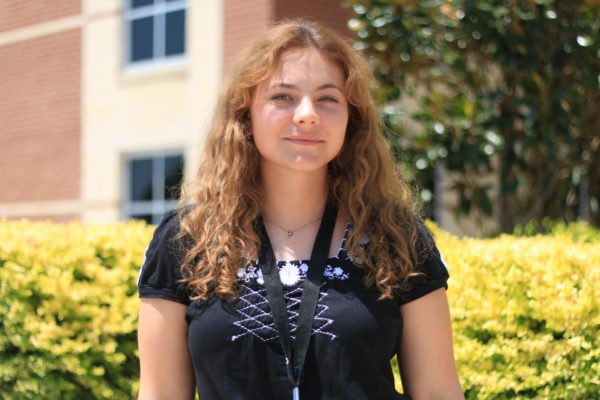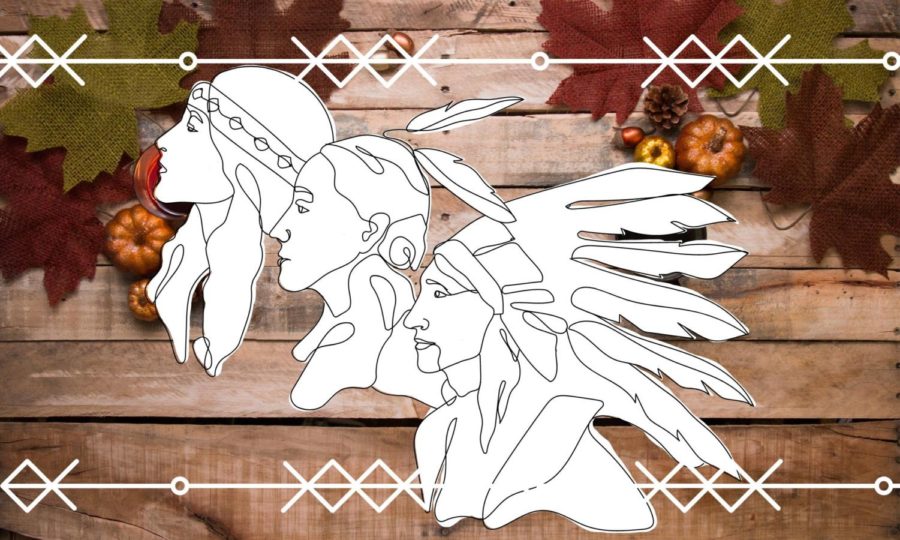Thanksgiving was a tragedy turned holiday
After this year’s Thanksgiving passed, I was reminded of an activity my class had to do in elementary school. I reflected on having to dress up as either a Native American or a pilgrim when discussing the origins of Thanksgiving. Teachers having small children reenact a holiday with dark origins as a teaching method never made me bat an eye, but I now see how tone deaf it truly was. The fact that my peers and I had to climb in boats and pretend to have a “feast” was off-putting, to say the least. Despite that, I’ve always wondered what Thanksgiving’s true origins were. As I now know, it’s a Thanks-scam.
To start off, Thanksgiving is a boring holiday; it has neither the joy of Christmas or the love of Valentine’s Day. Being thankful for family and friends is the point, but that should be a part of everyday life, not just reserved for one day of the year. The holiday is also full of lies. All jokes aside, Thanksgiving has often been told to us through the lens of the European settlers who colonized the Native Americans. Society has let us believe in a fantasy.
Teachers taught us that the history behind Thanksgiving was when the Pilgrims were taken in by the Wampanoag tribe when the colonists had a hard time settling in Plymouth. These Native Americans showed the Pilgrims how to live and thus, Thanksgiving was born as a way to honor the peaceful relations between the two distinct groups. That origin sounds lovely on paper: a little feast and celebration to commend the kindness of each group. Except for the fact that it’s all wrong. Not only did they not eat turkey and mashed potatoes, but they also did much worse.
The idea of giving thanks and celebrating others existed long before 1637, the date that modern Thanksgiving originates from. The original tale holds some truth: the Plymouth settlers had good relations with the Wampanoag tribe because they helped the starving settlers during a brutal winter. After the settlers’ cultivation of crops proved a success, Governor William Bradford organized a feast in celebration – that’s where the turkey and mashed potatoes come in.
The detail kept from our premature minds, however, was how gruesome the conflict between Europeans and Native Americans truly was. The alliance between the pilgrims and the Wampanoag tribe became strained as more settlers arrived, taking more of the Native Americans’ land. The colonists brought foreign diseases, and as a result, hundreds of native men, women and children were killed due to colonization.
The idea for Thanksgiving to be formally celebrated wasn’t formed until 1637 in Massachusetts, when John Winthrop, the colony’s current governor, declared a day of thanks and celebration to commend colonial soldiers in Connecticut. The only issue was that those soldiers were applauded for killing huge populations of Native Americans in order to drive them further westward within Connecticut. Thanksgiving was built on honoring these men and their heinous actions.
The Native American community was devastated by this tragedy, which was turned into a holiday that millions of Americans celebrate today.
The problem lies within misinformation. The majority of Americans are unaware of the brutal reality behind Thanksgiving. In 1970, numerous Indigenous communities took the initiative to spread awareness by creating the “National Day of Mourning,” which falls on the same day as Thanksgiving. An alternative teaching method to discuss this very difficult topic is by explaining how peace didn’t last. Teachers don’t need to dress children up or examine the tragedy of this holiday to get a point across: the importance of treating others how you want to be treated.
During the break, I found that history has the tendency to repeat itself if not remembered correctly. You can keep your ham and turkey, but next time during Thanksgiving remember the lives lost on this day. By making more of the public aware of such a tragedy through researching and educating yourself on American history, we can prevent history from repeating itself and keep the memory of those lost alive for their stories to be told. Next year, let Thanksgiving serve as a reminder of all the lives lost during that time: a remembrance of genocide.

Senior Olivia Evans is the web editor and this is her second year on staff. She plays the French Horn and enjoys listening to music.



